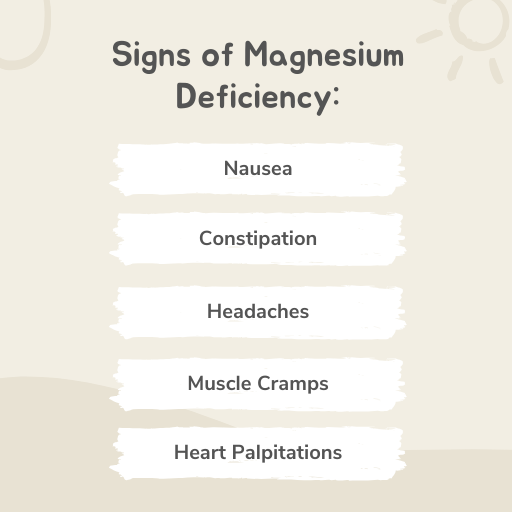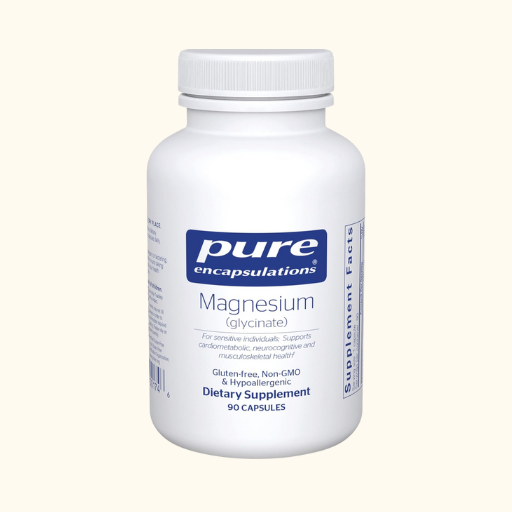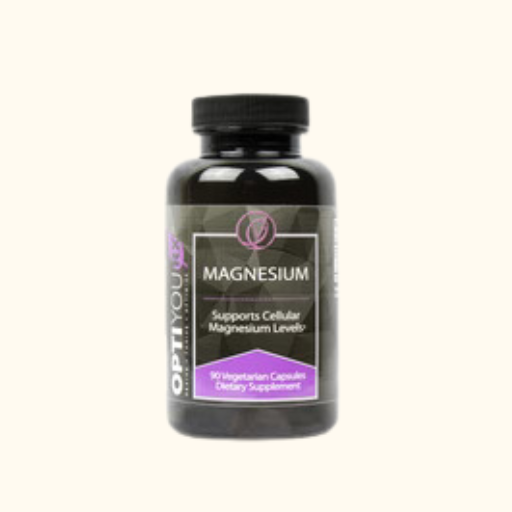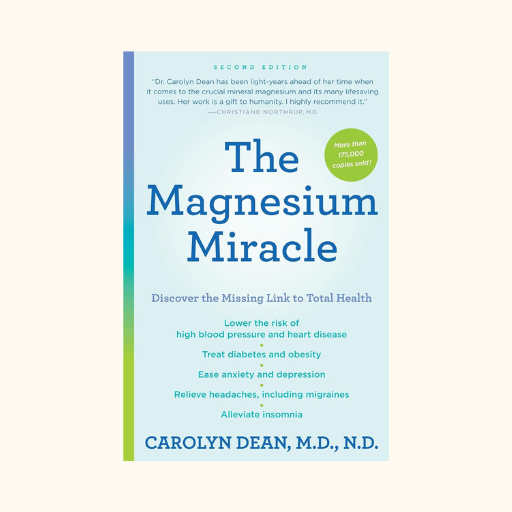
Magnesium is one of those essential minerals that often doesn’t get the spotlight it deserves. While calcium and iron usually steal the show, magnesium quietly works behind the scenes, playing a crucial role in our overall health and well-being. This post will explore what magnesium is, why it’s essential for daily intake, signs of magnesium deficiency, potential side effects, and the best ways to incorporate it into your routine.
What is Magnesium?
Magnesium is a mineral found in the earth, sea, plants, animals, and humans. It’s the fourth most abundant mineral in the human body, and scientists believe it is essential for the proper functioning of over 800 enzymatic reactions. These reactions are critical for various biochemical processes, including energy production, DNA synthesis, and muscle and nerve function regulation.
Why is Magnesium Important?
Magnesium is both directly and indirectly involved in over 1000 cellular processes that are vital for our health:
- Energy Production: Magnesium is crucial in converting food into energy. It’s a cofactor in producing ATP (adenosine triphosphate), the body’s primary energy currency.
- Protein Synthesis: It aids in synthesizing proteins from amino acids, which are the building blocks of our body.
- Muscle and Nerve Function: Magnesium is crucial for muscle contraction, relaxation, and the proper functioning of nerves.
- Blood Glucose Control: It helps regulate blood sugar levels, which is vital for preventing and managing diabetes.
- Blood Pressure Regulation: Adequate magnesium intake can help maintain healthy blood pressure levels.
- Bone Health: About 60% of your body’s magnesium is found in your bones, which plays a role in bone formation and maintaining bone density.
- Heart Health: Magnesium helps maintain a steady heart rhythm and is essential for cardiovascular health.
- Vitamin D Absorption: Without magnesium, your body can’t use vitamin D. Taking vitamin D supplements without taking a magnesium supplement can make a magnesium deficiency worse.
Signs of Low Magnesium

Despite its importance, many people do not get enough magnesium in their diets. Magnesium deficiency is seemingly more common nowadays, possibly due to our soil lacking minerals because of chemicals and pesticides used to treat it. Moreover, according to Dr. Carolyn Dean, author of The Magnesium Miracle, the use of prescription medications can deplete magnesium, especially proton-pump inhibitors, statins and blood pressure medications. Low magnesium levels can manifest in various ways, and it’s essential to recognize these signs early. Here are some common symptoms of low magnesium:
- Nausea: Feeling nauseous can be an early sign of magnesium deficiency.
- Constipation: Magnesium helps regulate bowel movements. Low levels can lead to constipation.
- Headaches: Magnesium deficiency can cause frequent headaches or migraines.
- Nighttime Leg Cramps: Magnesium is vital for muscle relaxation. Deficiency can lead to painful leg cramps at night.
- Numbness or Tingling in the Legs or Hands: Low magnesium levels can affect nerve function, leading to numbness or tingling sensations.
- General Body Weakness: Magnesium is essential for muscle function, and low levels can cause overall body weakness.
- Tremors: Involuntary muscle twitches or tremors can indicate low magnesium.
- Heart Palpitations: Magnesium is crucial for heart health, and deficiency can cause irregular heartbeats or palpitations.
Potential Side Effects of Magnesium Supplements
While magnesium is essential for health, it’s important to be mindful of how you supplement it. Taking too much magnesium can lead to adverse effects. Here are some potential side effects to be aware of:
- Diarrhea: High doses of magnesium, especially in the form of magnesium oxide, can cause diarrhea.
- Nausea and Stomach Cramps: Taking too much magnesium at once can lead to gastrointestinal discomfort.
- Low Blood Pressure: Excessive magnesium can lower blood pressure too much, leading to dizziness or fainting.
- Irregular Heartbeat: Extremely high levels of magnesium can cause heart rhythm problems.
It’s crucial to start with a low dose and gradually increase it as your body adjusts. This approach helps minimize side effects and ensures that your body can absorb the magnesium effectively. The maximum recommended daily dose is 420mg. However, this depends on various factors, so check with your healthcare provider.
Best Types of Magnesium Supplements
Not all magnesium supplements are created equal. The type of magnesium you choose can affect its absorption and the likelihood of side effects. Always check the ingredient label on the back of the bottle to know which forms of magnesium are in the supplement.
- Magnesium Citrate: This form is highly absorbable and is often recommended for those with low magnesium levels. It also has a mild laxative effect, which can be beneficial for those with constipation.
- Magnesium Glycinate: Known for its high bioavailability, magnesium glycinate is gentle on the stomach and less likely to cause diarrhea. It’s an excellent option for those needing a reliable daily supplement and my favorite.
- Magnesium Oxide: While this form contains a high amount of elemental magnesium, it’s not as well absorbed and can often cause diarrhea. It’s generally not recommended for daily supplementation due to its potential for gastrointestinal side effects.
Foods High in Magnesium

In addition to supplements, incorporating magnesium-rich foods into your diet is a natural and effective way to boost your intake. Here are some foods that are high in magnesium:
- Leafy Green Vegetables: Spinach, kale, and Swiss chard are excellent sources of magnesium.
- Nuts and Seeds: Almonds, cashews, pumpkin seeds, and sunflower seeds are all magnesium-rich.
- Whole Grains: Brown rice, quinoa, and oats contain significant amounts of magnesium.
- Legumes: Beans, lentils, and chickpeas are good plant-based sources of magnesium.
- Fish: Fatty fish like salmon and mackerel are rich in omega-3 fatty acids and magnesium.
- Avocados: This versatile fruit is an excellent source of magnesium and healthy fats.
- Dark Chocolate: High-quality dark chocolate with at least 70% cocoa is a delicious treat and a good source of magnesium.
How to Incorporate Magnesium into Your Daily Routine
Incorporating magnesium into your daily routine doesn’t have to be complicated. Here are some tips to help you get started:
- Eat a Balanced Diet: Aim to include a variety of magnesium-rich foods in your meals. A balanced diet is the foundation of good health.
- Start with a Low Dose: If you’re taking a supplement, start with a low dose and gradually increase it. Doing this helps your body adjust and reduces the risk of side effects.
- Choose the Right Supplement: Opt for magnesium citrate or glycinate for better absorption and fewer side effects.
- Stay Hydrated: Drinking plenty of water can help your body absorb magnesium more effectively.
- Consult Your Doctor: Consult your healthcare provider before starting any new supplement, especially if you have existing health conditions or are taking medications.
My Summary
Magnesium is a powerhouse mineral critical to our overall health. Its benefits are far-reaching, from energy production and muscle function to heart health and bone density. Recognizing the signs of low magnesium and ensuring adequate intake can significantly improve your quality of life.
Remember, the best approach to magnesium supplementation is to start low and go slow, choosing highly absorbable forms like magnesium citrate or glycinate. Incorporating magnesium-rich foods into your diet is also a natural and effective way to meet your daily needs.
This information is based on my personal experience and is for education purposes only, not for medical advice. As always, consult your doctor before starting any new supplement regimen. With the right approach, you can harness the power of magnesium to support your health and well-being.
Shop this post
I’ve tried many different brands of Magnesium over the years. Here are a few that I purchase over and over again, but do your due diligence to determine which is best for you.
AS AN AMAZON ASSOCIATE, I EARN FROM QUALIFYING PURCHASES. READ MY DISCLOSER HERE. THANK YOU FOR SUPPORTING MY SMALL BUSINESS!




Pin it for later


I’m going to read this post of my husband! He is always finding out information about supplements and the health benefits. Thank you for this straight forward, easy to understand post about magnesium!